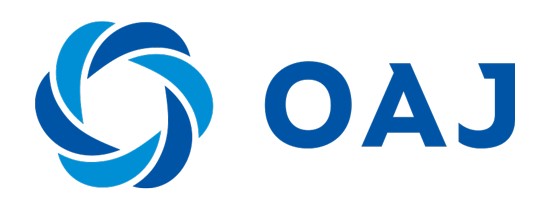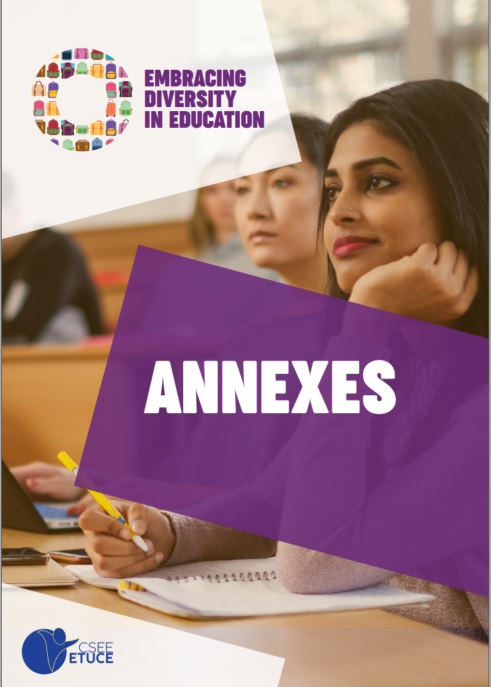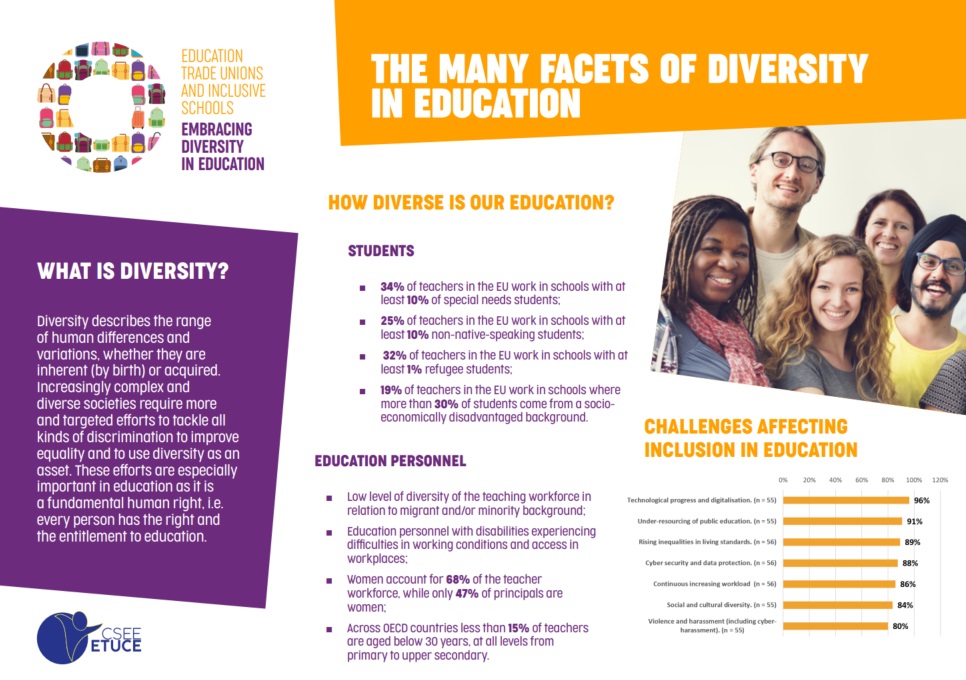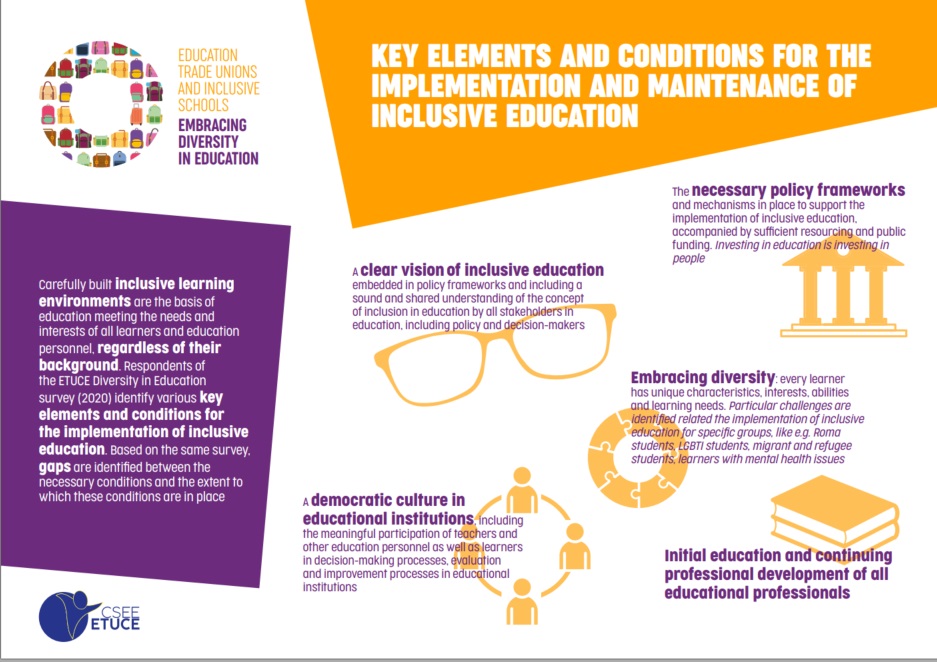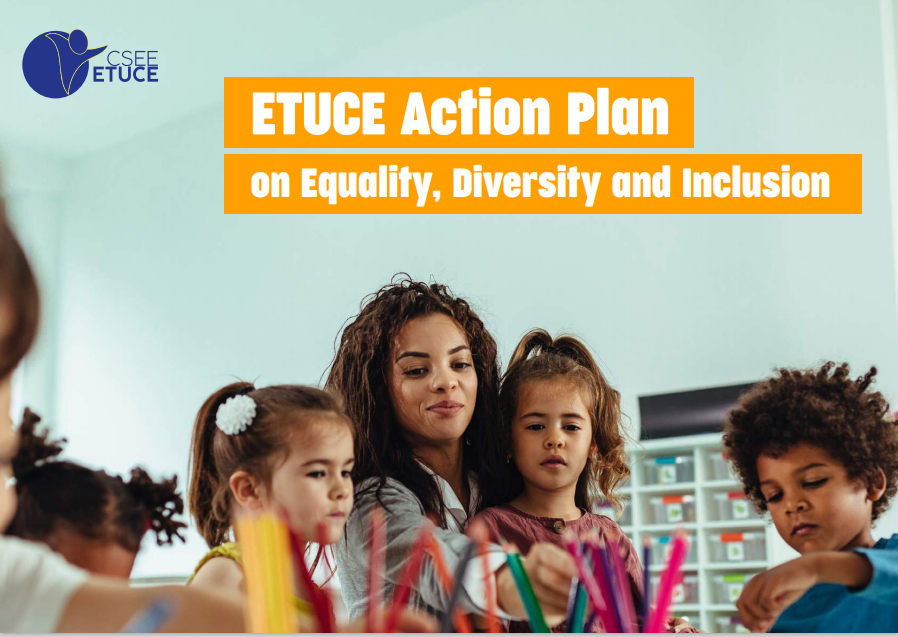Research
Europe’s learners and education personnel are becoming more diverse. The project “Education Trade Unions and Inclusive Schools: Embracing Diversity in Education” is building capacity so that education trade unions can prepare their members to address the many forms of diversity they encounter in the classroom and in society: socioeconomic, cultural, linguistic and more. ETUCE and member organisations aim to support education personnel in creating inclusive learning environments where every student and teacher can achieve their full potential.
-
Projects and Tools
-
YOUR TURN! Teachers for Trade Union Renewal (2018-2020)
-
Activities Your Turn!
-
ESSDE partners promoting migrant and refugee integration (2017-2019)
-
Activities
-
EU CONVINCE project – EU Common Values Inclusive Education (2018-2020)
-
Activities
-
OiRA project – Online Interactive Risk Assessment tool
-
Empowering education trade unions to address gender equality in the teaching profession through social dialogue (2018-2019)
-
Activities
-
ETUCE Online Database of Good Practices
-
Education Trade Unions and Inclusive Schools: Embracing Diversity in Education (2019-2021)
-
e-Speed (2020-2021)
-
Privatisation and Industrial Relations (2020-2021)
-
Activities IR-EDUREFORM Project
-
Education for Social Change: The role of Education Trade Unions in addressing sustainable environmental development (2021-2022)
-
Attractiveness of the Teaching Profession (2021-2023)
-
ELNE : European Leadership Network Europe
-
ETU4REF: Education Trade Unions support the inclusion of refugees and migrant (2023-2025)
-
APRES COVID
-
Your Turn 2: Teachers for Trade Union Renewal
-
InclEdu4AllNeeds
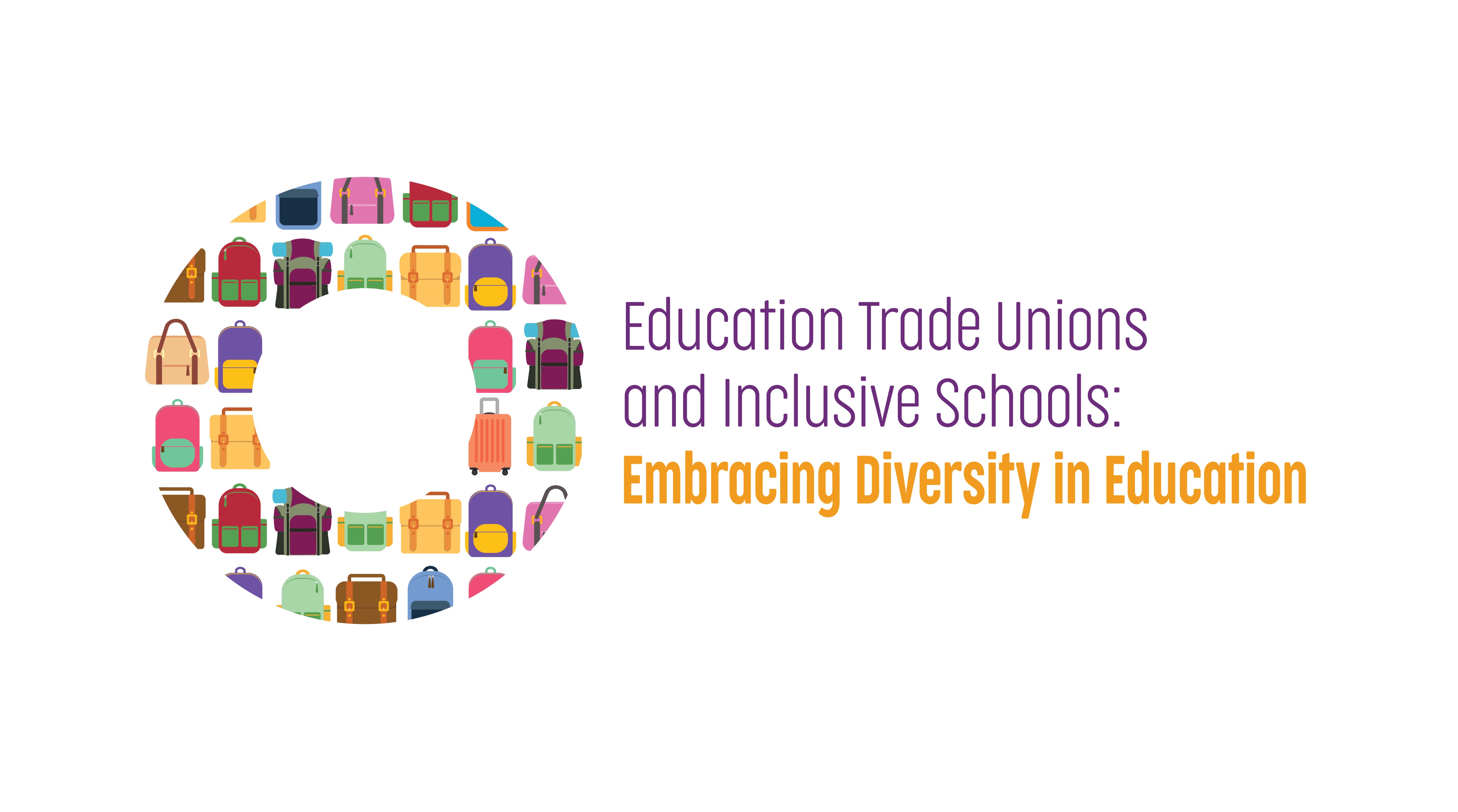
Advisory Group
- Manos Androulakis DOE Greece
- Alison Gilliland INTO Ireland
- Conceiçao Nunes SINDEP Portugal
- Alexandra Cornea FSLI Romania
- Lyhykäinen Päivi OAJ Finland
- Dubravko Tomasović IURHEEC Croatia
Funding
Related topics
Related news
The report ‘Embracing Diversity in Education’ prepared by Dominique Danau (SAGO Research) presents the research findings of the project, which are complementary to the results of the other project activities. The main objectives of this research are:
- To identify national findings related to the impact of the changes in society and the labour market linked to the diversification of the population, globalisation, increased migration, technological progress and digitalisation, intensification of poverty and territorial disparities, on the education and teaching profession.
- To identify specific training needs and interests of education trade unions regarding the support for teachers, academics and other education personnel in working with a diverse student population and implementing inclusive education.
- To identify successful, innovative and transferrable good practices of creating and maintaining sustainable inclusive learning environments in various national and local contexts.
To achieve these objectives the following data-gathering instruments were used:
- An online questionnaire distributed among ETUCE members in EU/EFTA and candidate countries (period April – September 2020).
- Desk research to provide background for the interpretation of the data.
- A template was sent to ETUCE members in EU/EFTA and candidate countries to gather good practices on diversity in education. Whenever necessary respondents were contacted for elaboration of the responses and material they sent.
More detailed figures related to the findings are available in a separate annex.
Due to the richness of the data provided by ETUCE members, separate Fact Sheets are made available with more detailed data on different topics (introduction on the theme of diversity in education, key elements and conditions for inclusive education, training needs of teachers, academics and other education personnel in relation to diversity in education).
A description of the good practices on building and maintaining sustainable inclusive learning environments in various national and local contexts is presented in a separate Catalogue of Good Practices, that will be available online as well as in the ETUCE Online Database of Good Practices.




